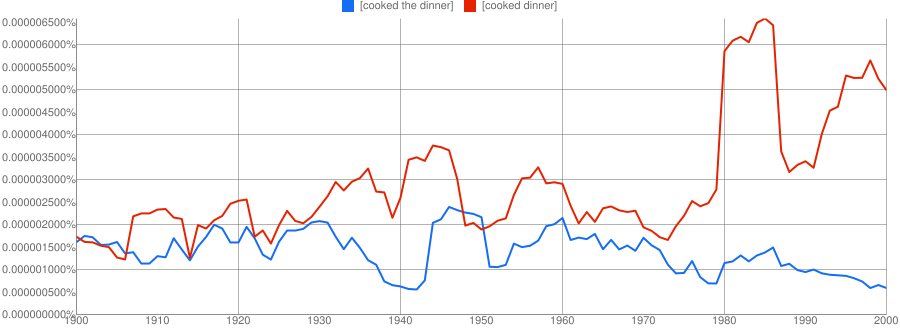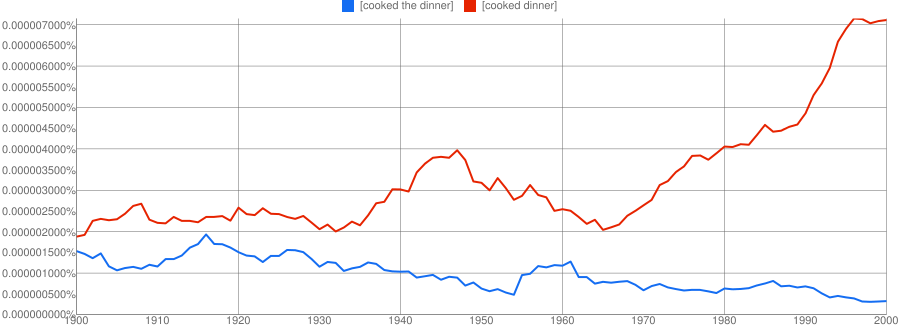My name's Elsie Jackson. I'm eighty-nine years old. I was at school eighty years ago! Every morning I helped my mother. We lived on a farm, and sometimes I milked the cows. I walked eight kilometers to school. School started at eight o'clock. I learned reading, writing and math. And then I walked home with all my brothers and sisters. In the evening, my mother and I cooked the dinner. We didn’t watch TV, but we played games.
Shouldn't it be:
In the evening, my mother and I cooked dinner.
Grammar reference:
We do not normally use the with breakfast/lunch/dinner:
- What did you have for breakfast?
- We had lunch in a very nice restaurant.
Raymond Murphy, English Grammar in Use, Fourth edition, Page 146


